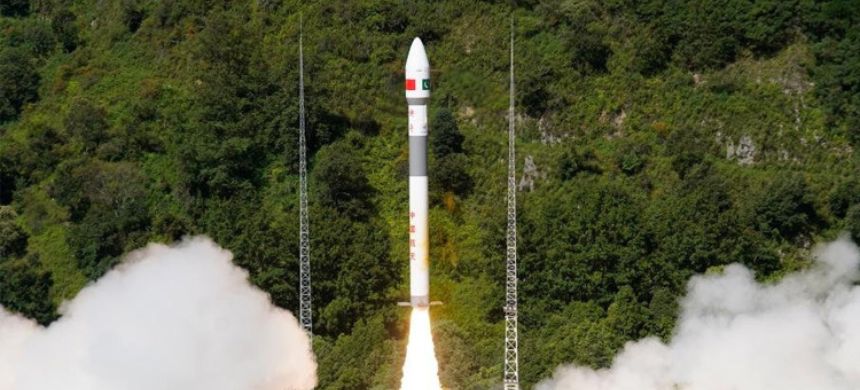Pakistan announced on Thursday the successful launch of a new Remote Sensing Satellite, marking a significant advancement in its space technology efforts.
According to the Pakistan Space and Upper Atmosphere Research Commission (SUPARCO), the satellite was launched from China’s Xichang Satellite Launch Center and has successfully reached its orbit. It now joins Pakistan’s existing satellite fleet, which includes PRSS-1 (launched in 2018) and EO-1, the country’s first fully indigenous satellite, launched in January 2025.
SUPARCO stated that the latest satellite is equipped with advanced sensors and will support a wide range of functions, such as precision farming, land resource management, environmental monitoring, urban planning, and disaster response. It will enable real-time tracking of natural hazards like floods, landslides, glacier retreat, earthquakes, and deforestation.
Additionally, the satellite is expected to play a crucial role in national infrastructure projects, particularly under the China-Pakistan Economic Corridor (CPEC), by identifying geological threats, mapping transportation networks, and promoting sustainable development initiatives.
The mission showcases the progress of Pakistan’s space program, which regained momentum in 2011 with the launch of PakSat-1R, a communications satellite built in collaboration with China. This was followed by PakTES-1A and PRSS-1 in 2018, which laid the groundwork for Earth observation and remote sensing capabilities.
Federal Minister for Planning, Development, and Special Initiatives, Ahsan Iqbal, congratulated the nation on the achievement, calling it a key milestone in Pakistan’s space journey. He thanked SUPARCO, the scientists, engineers, and the Chinese government for their support.
“The satellite has successfully reached its orbit,” he confirmed. “This is a major step toward achieving technological self-sufficiency in space.”
Iqbal also reaffirmed the government’s commitment to advancing Pakistan’s role in regional space innovation, revealing plans to send a Pakistani astronaut into space next year with China’s support and to carry out a lunar mission by 2035.











